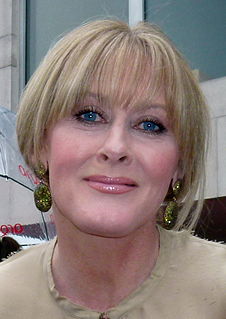A Quote by Carlos Ruiz Zafon
My work as a screenwriter has influenced my fiction. Writing screenplays forces you to consider many elements regarding story structure and other narrative devices that can be used to enhance the infinitely more complex demands of a novel.
Related Quotes
Witing is essentially interior work, and many writers are interior personalities. Having a job forces you out of the world of your work, and into the one in which you get to observe people. Yes, you can imagine all this, but as a fiction writer, you can never observe enough the rhythms of how humans move through the world. A job demands that you structure your time much more carefully. You learn how to be resourceful, and that in turn provides a certain intensity of focus.
Writing fiction, for me, is a more indirect form of self-exploration than writing verse. When I'm working on a novel I'm moving characters around and I'm thinking about plot and there's a lot of other things going on at the level of structure and story. With a poem, a single idea or line or emotion can sometimes be enough - there's often a sense, in the best poems, of capturing a single instant. Perhaps poems differ from prose in the degree of solace they can offer - by speaking so personally, so directly, about shared experience. A few lines of poetry can provide comfort.
I think of myself as a narrative artist. I don't think of myself as a novelist or screenwriter or playwright. All of those modalities of processing and experiencing narrative are obviously very different, and I'm not sure that I prefer any one to the other. I think the novel gives you the opportunity to have a kind of interiority that you can't have in the theater, which is pure exteriority.
When I left university I was sure that I was going to be a painter. Then I had a crisis, a revelation. I saw Dolce Vita and my mind was blown by it, by the synthesis. I realised I wanted to be a filmmaker and started making films. I was writing screenplays and couldn't get money because my work was so uncommercial. I got married and started writing fiction. What was wonderful is that it gave me my freedom because no-one can tell me I can't work. Novels have become equally important to me as films. I consider myself a storyteller and passionately engaged in both of those disciplines.
I do think some games are works of art, although their medium is visual rather than verbal. Both games and novels allow the reader/player to become a protagonist in the theater of the imagination. Both build worlds. In my opinion, the big difference between game and novel is in narrative structure. Communal role-playing games are open-plan without an end. A novel - at least the kind I write - has a closed structure with a beginning, a middle, and an end. I like that closed structure, and I feel I can say more with it.
It's true that the young who now flock to script writing, or producing and directing, to fulfill the demands of these new devices would, in an earlier period, have been submitting to magazines and working on their first novels. But even in the midst of all these "digital products," the wonder of it is that there are still so many young writers who continue to believe in the venerable print novel as the corridor to fame and fortune.







































